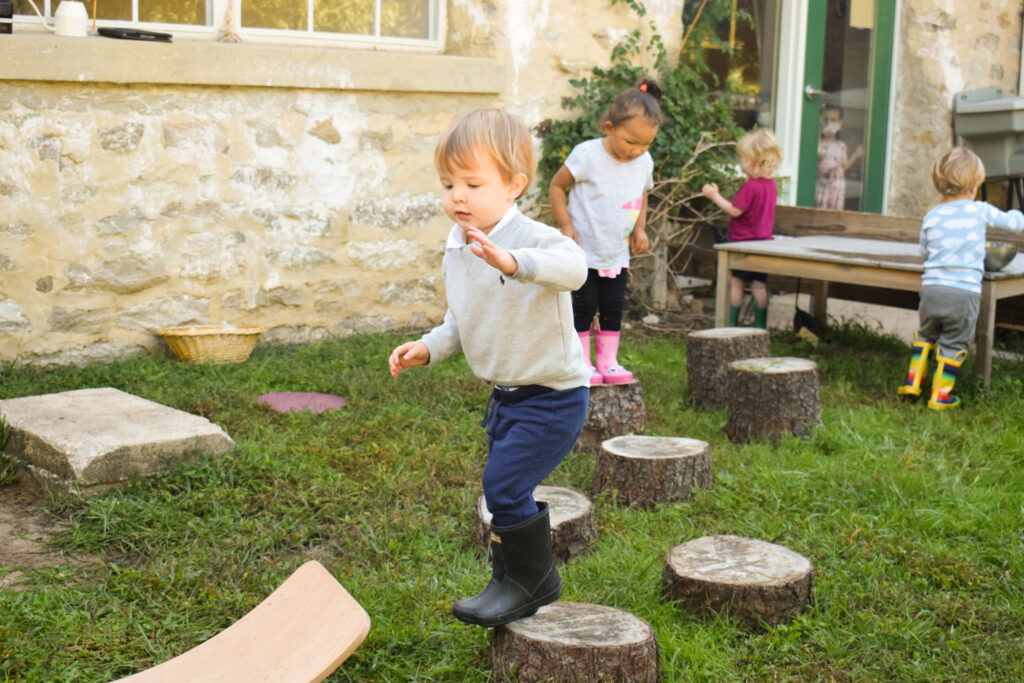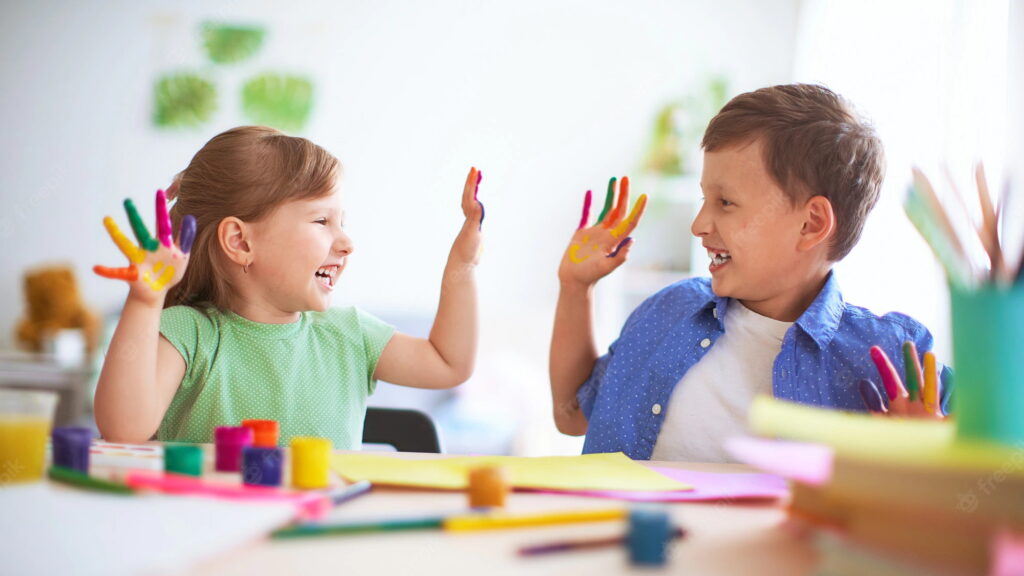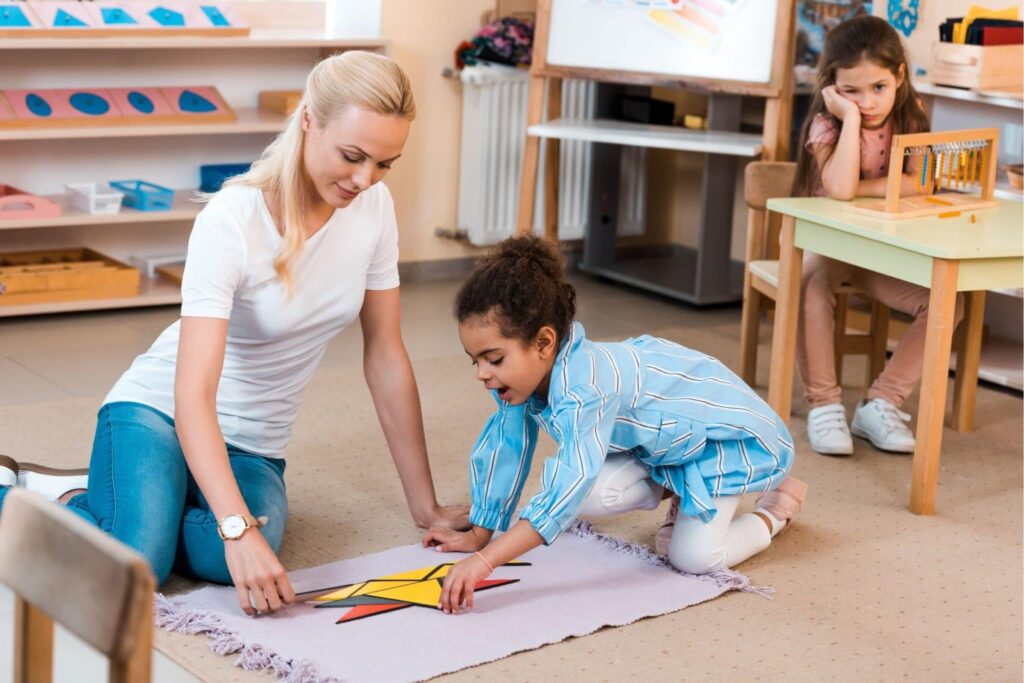Oh toddlers. These delightful dictators manage to keep us both bemused and frustrated as we run around trying to make sense of their contradictory world.
Take a deep breath and let’s explore six annoying things toddlers do, and why they are beneficial to their development.
1. Make a huge mess
Toddlers turn almost every opportunity into a mess-making endeavour. They will pull tissues out of the box, fling laundry from the basket, pour water on the floor, smear food and gleefully throw dirt into the air. It seems like toddlers leave a trail of destruction behind wherever they go. And you’re left cleaning it all up.
But toddlers need to be given opportunities for messy play because this is how they learn about the world around them! You can describe a red apple to a child, but they need to feel its leathery red skin, hear its crunch, watch the juice drip down and seemingly ‘play’ with it to truly learn through experience. Being given the freedom to explore fuels a child’s natural curiosity and inspires a love for learning. Through their messy endeavours toddlers engage their senses, develop fine motor skills, use their imagination and then, with your patience, learn to clean up after themselves.

2. Request the same book, song or show over and over
“More. Again. Again.”
You just want to scream at the thought of hearing that nursery rhyme, reading that book or playing that show one more time. You wonder, ‘how on earth can this be entertaining at the 11th reading?’
Repetition helps a toddler’s speech development. By hearing the same words and phrases, it cements their vocabulary and gives them a stronger foundation for further learning. Repeating content, and even behaviour, also helps their memory development. Think about a time you tried to learn a new skill, such as playing the piano or cooking a complicated dish – practice makes perfect.
In addition, repetition is pleasing and comforting for a toddler. It empowers them with the knowledge of what’s going to happen next. This is why the predictable pattern of many children’s songs also gives them the enjoyment of accurately anticipating what’s to come.
3. Be defiant
Toddlers are realising they are separate individuals from their parents and caregivers, and with this realisation comes defiance. Testing behaviours and resistance are healthy signs our toddlers are developing a sense of identity and independence.
It can be easy to wish your child would simply listen to your instruction, but is that what you really want? We aren’t raising robots, but thinkers and doers. They are actually trying to take some control of their lives, which is good for them.
Through their seemingly constant defiance, toddlers are also asking us to clarify our expectations, rules and boundaries. They want to know what decisions are theirs (which socks to wear), and what decisions are yours (holding hands in the carpark). They need freedom within limits, to keep them and others safe. By enforcing age-appropriate boundaries during testing moments, toddlers will feel secure, even though they may be frustrated at facing limitations.

4. Tantrum
You might be thinking, ‘How can a tantrum be a good thing?!’
Firstly, if your child is throwing tantrums with you, it’s a sign they truly feel safe and comfortable. The primary caregiver often feels like they cop the brunt of tantrums, especially when a toddler seems well behaved for others, but in fact it’s an annoying compliment!
Often, when toddlers tantrum they have built up emotion and this is their way of expelling it and not bottling everything up inside. Sometimes it’s because they are tired, hungry or overwhelmed and don’t know how to express themselves. Toddlers are still developing their language skills and they struggle to express their ideas, wants and needs. They haven’t developed the ability and practice to self-regulate, so they need our help. While it can be downright frustrating and confusing to deal with tantrums, it’s also an opportunity to teach our children how to deal with their emotions constructively.
5. Bounce around and refuse to sit still
Children are driven by a need to develop their body and brain – they need to move to learn. We use our senses to gather information from the environment and learn how to appropriately interact. A toddler’s hands, mouths and bodies are tools for exploring.
Your toddler’s constant need to move is part of their development of physical literacy – which is the ability to move competently and confidence in a variety of ways. Toddlers are learning fundamental movement skills and gross motor skills. In some ways, they are doing what we should all continue to do in our lives – stay fit through being active.

6. Insist you repeat words and phrases after them
Toddler: Look, red truck, red truck.
Parent: *distracted*
Toddler: Red truck
Parent: Yes, I can see
Toddler: Red truck, look
Parent: Yes, thanks sweetie
Toddler: RED TRUUUUUCK
Parent: Okay, I got it thanks – that’s a red truck
Toddler: *silence and satisfaction*
Does your little one keep repeating the same word or phrase over and over despite your agreement or acknowledgement? It can drive anyone crazy! The truth is, they want you to respond with their exact wording, repeating the same phrase after them.
This annoying habit is a helpful tool for your toddler as they want to make sure you have understood them. It also helps their language development by hearing the word, pronounced correctly, by their caregiver. While it takes a little re-think on our behalf, a simple acknowledgement using the child’s own words helps them feel seen, heard and validated.


